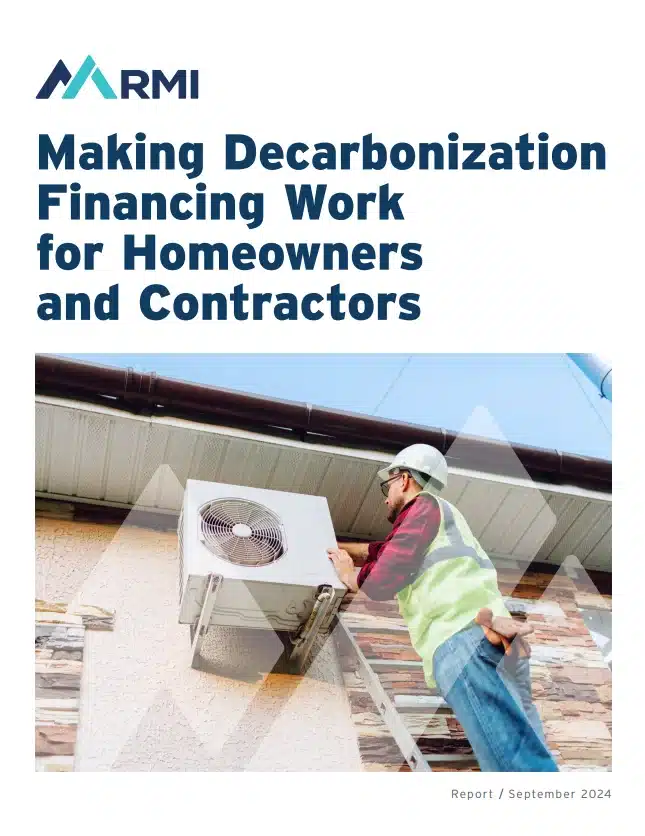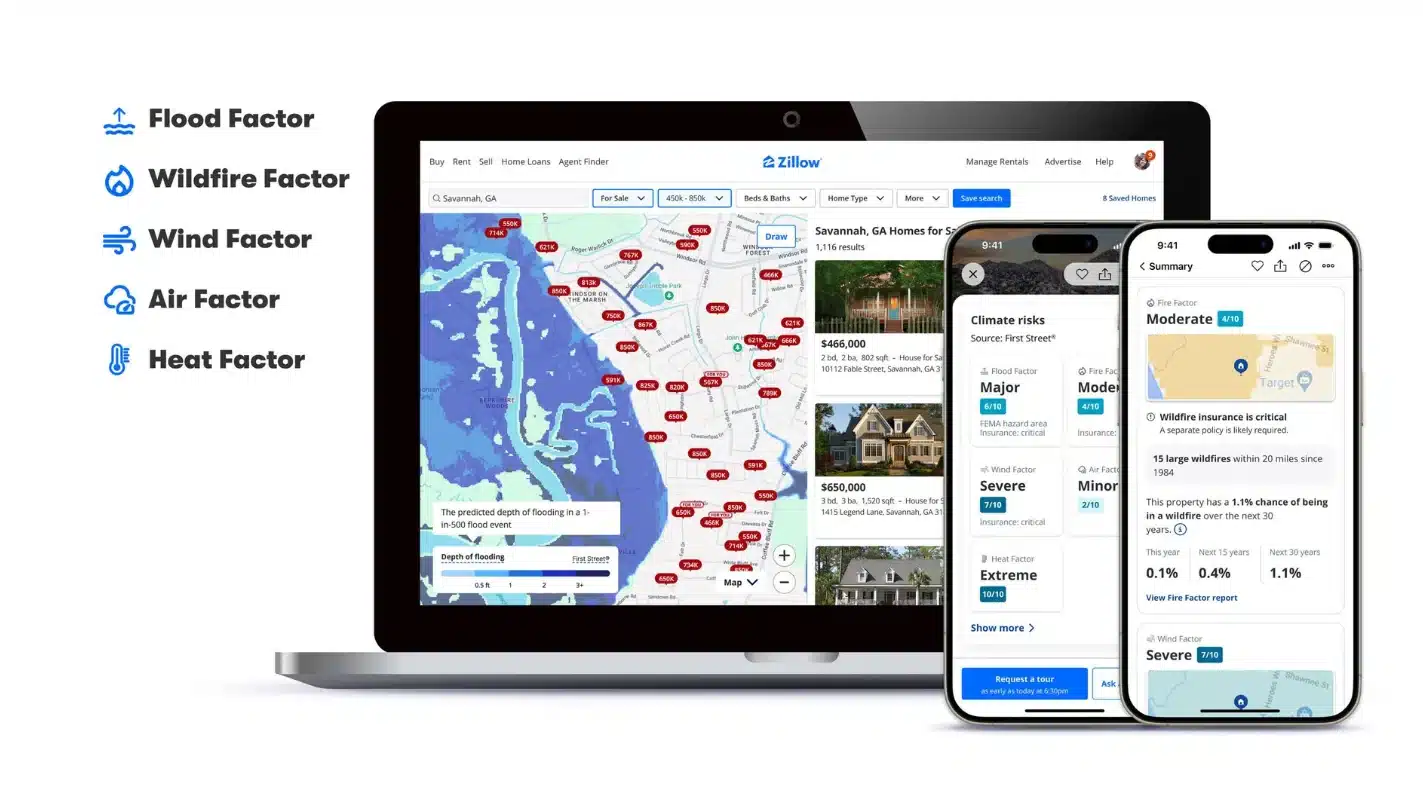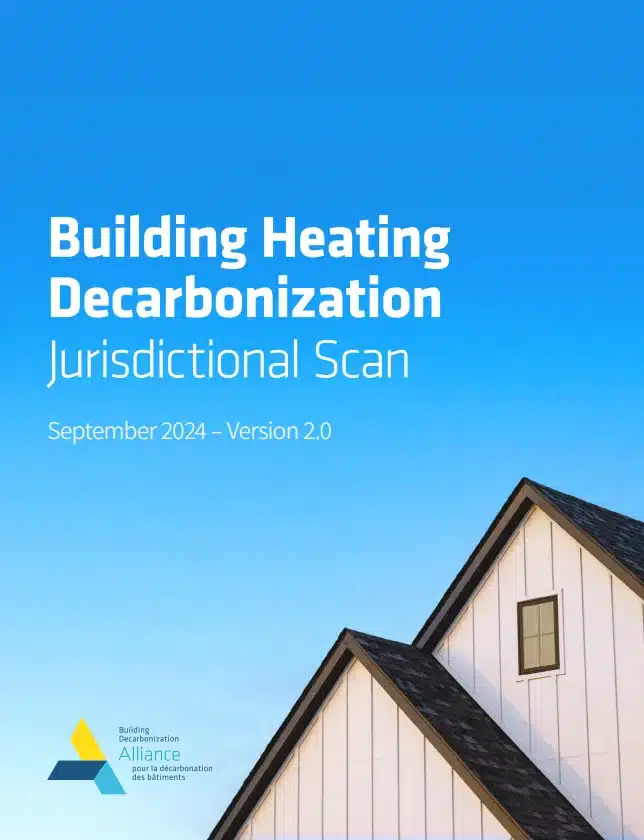Efficiency Canada’s Comments on Amendment 19 to Canada’s Energy Efficiency Regulations

Efficiency Canada has submitted comments on the proposed Amendment 19 to Canada’s Energy Efficiency Regulations, which introduces new standards for various energy-consuming products. Efficiency Canada supports several proposed changes, particularly to align energy efficiency standards with that of the United States for products like air cleaners, commercial furnaces, and ground-source heat pumps. However, some concerns were raised, including the potential negative consequences of separating efficiency standards for heat pump water heaters and the necessity for stronger efficiency requirements for manufactured fenestration products. Efficiency Canada urges Natural Resources Canada to implement more rigorous standards that aim to reduce energy consumption, lower greenhouse gas emissions, and enhance the accessibility of energy efficiency for all Canadians.
REPORT: Making Decarbonization Financing Work for Homeowners and Contractors

RMI’s new report titled Making Decarbonization Financing Work for Homeowners and Contractors, highlights the urgent need to decarbonize single-family homes, which account for 58% of U.S. building sector greenhouse gas emissions. It identifies high up-front costs as a significant barrier to electrification, particularly for heat pumps. The report outlines five key features for effective financing programs, including eliminating up-front costs, simplifying applications, and prioritizing efficient electric alternatives over fossil fuels.
REPORT: Equity-based Energy Retrofits to Address Energy Poverty in Canada
The report Equity-Based Energy Retrofits to Address Energy Poverty in Canada, co-authored by Efficiency Canada’s Abhilash Kantamneni, critiques energy retrofit programs for low-income households, noting they often overlook the complex determinants of energy poverty. Using a vulnerability-based framework, the study reveals that inadequate funding and a narrow focus on energy efficiency limit the effectiveness of these programs. Through expert interviews, it identifies opportunities to broaden policies and improve support for vulnerable households, advocating for a comprehensive approach that addresses the socioeconomic and cultural factors contributing to energy poverty.
2022 Canadian Housing Survey: New Insights into Housing Needs and Conditions
The 2022 Canadian Housing Survey by CMHC and Statistics Canada reveals ongoing challenges in housing affordability and core housing needs. Renters continue to face more difficulties compared to homeowners, with racialized and Indigenous households experiencing even greater hardships. The survey also indicates a significant increase in the number of Canadians reporting financial struggles related to housing costs. These insights highlight the pressing need for targeted policies to address the diverse housing challenges across Canada.
Zillow Real-Estate Listings Are Adding Climate-Risk Data

Zillow has enhanced its real estate listings by incorporating climate-risk assessments, helping home buyers understand how factors like flooding, wildfires, air quality, wind, and heat may affect their future properties. This new feature aims to inform buyers and real estate agents about potential risks that can lead to higher insurance costs, repair bills, and utility expenses.
Sustainable Buildings Canada to Lead National & Provincial Sustainability Programs
Sustainable Buildings Canada (SBC) has been selected by Natural Resources Canada to lead two major projects enhancing sustainability in Canada’s built environment. The Codes Acceleration Project aims to help Building Officials across the country adopt higher-tier energy codes, while the EnergySPRING program focuses on deep-energy retrofits for low-rise affordable housing in Ontario, particularly within social and Indigenous communities.
Manitoba’s Affordable Energy Plan: Building the Next Generation of Clean Energy

Manitoba’s Affordable Energy Plan aims to keep energy costs low while advancing the shift to clean energy and creating economic opportunities. The plan emphasizes making climate-friendly choices accessible by supporting energy efficiency, offering rebates, and prioritizing public ownership of Manitoba Hydro to ensure stable rates. Government partnerships with Indigenous communities will help build renewable energy project. By aligning efforts across various entities, Manitoba aims to grow its clean energy future while keeping energy affordable for all.
Free Coaching Program Launches in Alberta to Help Building Owners Reduce Emissions
Building owners and managers in Alberta can now access free coaching for sustainable building upgrades, supported by $14.8 million from Natural Resources Canada. This funding will go towards Alberta Ecotrust’s Retrofit Accelerator, which provides guidance for deep retrofits, helping reduce emissions, energy use, and costs. The program also supports funding applications and integrates retrofits into regular maintenance.
Port Moody Approves Stricter Environmental Requirements for New Buildings
The City of Port Moody has approved new efficiency and emissions requirements for all new buildings. The updated rules, which include requiring carbon neutrality in all new developments starting in 2025, will put Port Moody five years ahead of the province’s scheduled update to the BC Building Code. Some developers raised concerns about costs and implementation timelines.
L’Union des consommateurs Warns of Rising Electricity Rates for Quebec Households
The Union des consommateurs (UC) is urging Quebec to prioritize energy efficiency to reduce electricity demand and protect low-income households from rising rates under Bill 69. They warned of potential rate increases of 5.6% to 9% by 2028 due to Hydro-Québec’s planned investments. The UC advocates for an ambitious energy efficiency program, including improving building insulation, and calls for a legal cap on annual rate increases. They also raised concerns about the potential privatization of Quebec’s electricity market, which could lead to further rate hikes.
Building Heating Decarbonization Jurisdictional Scan

